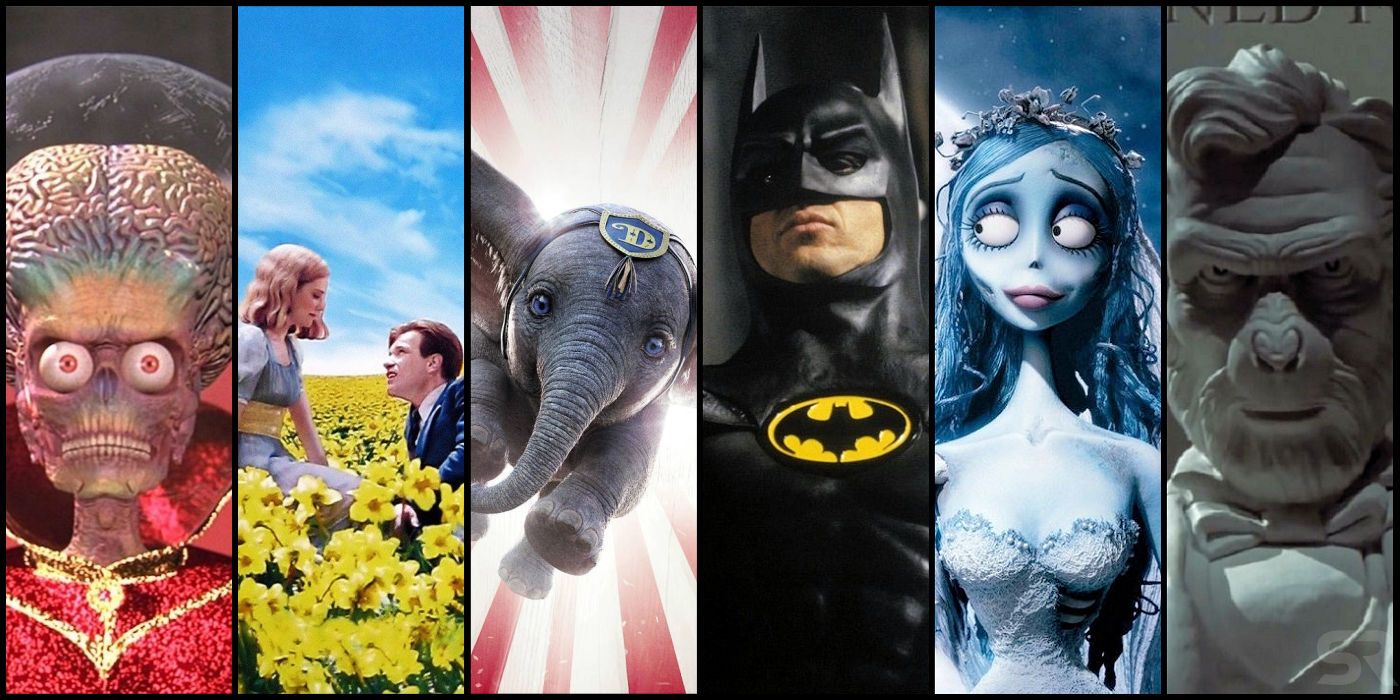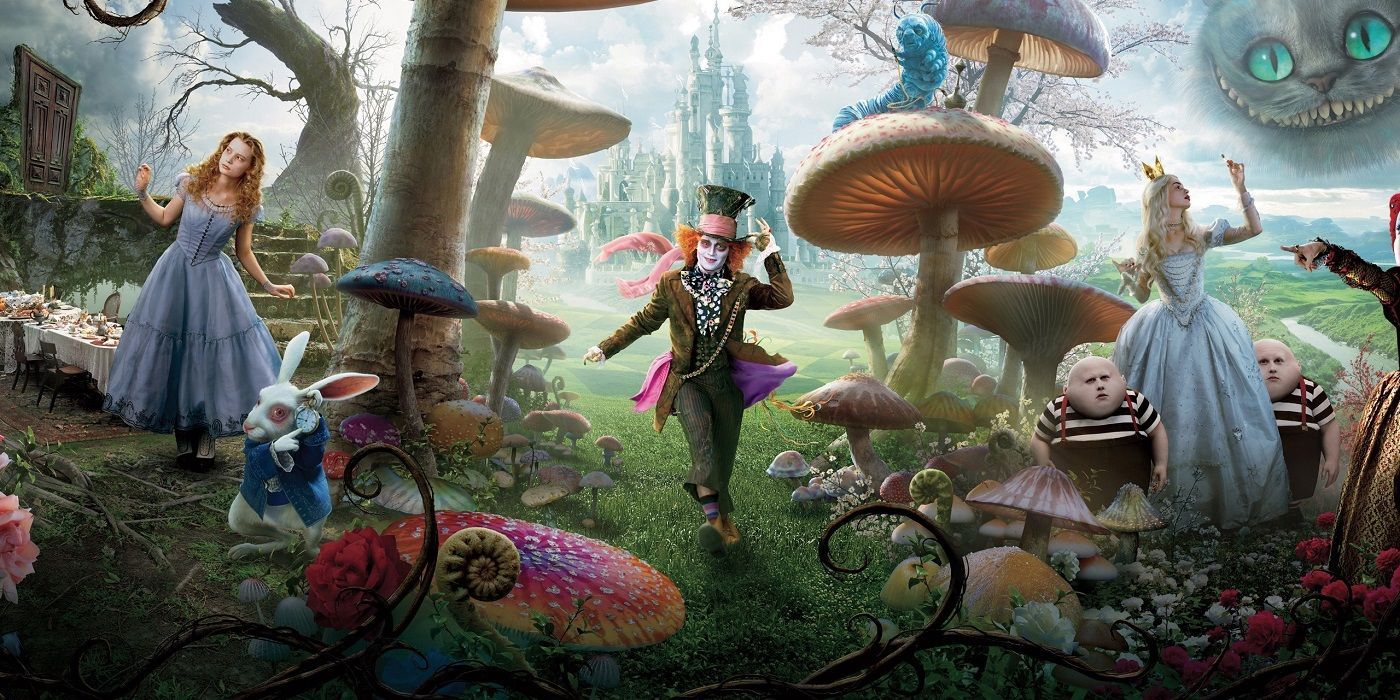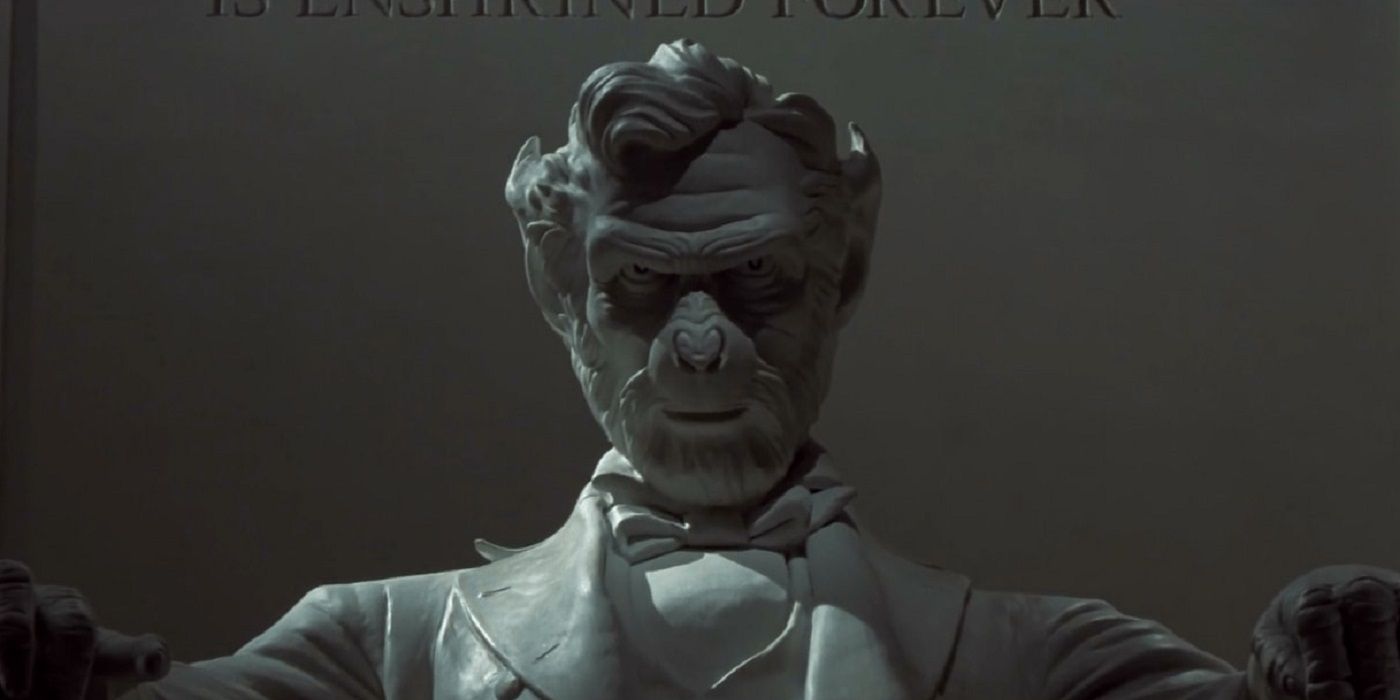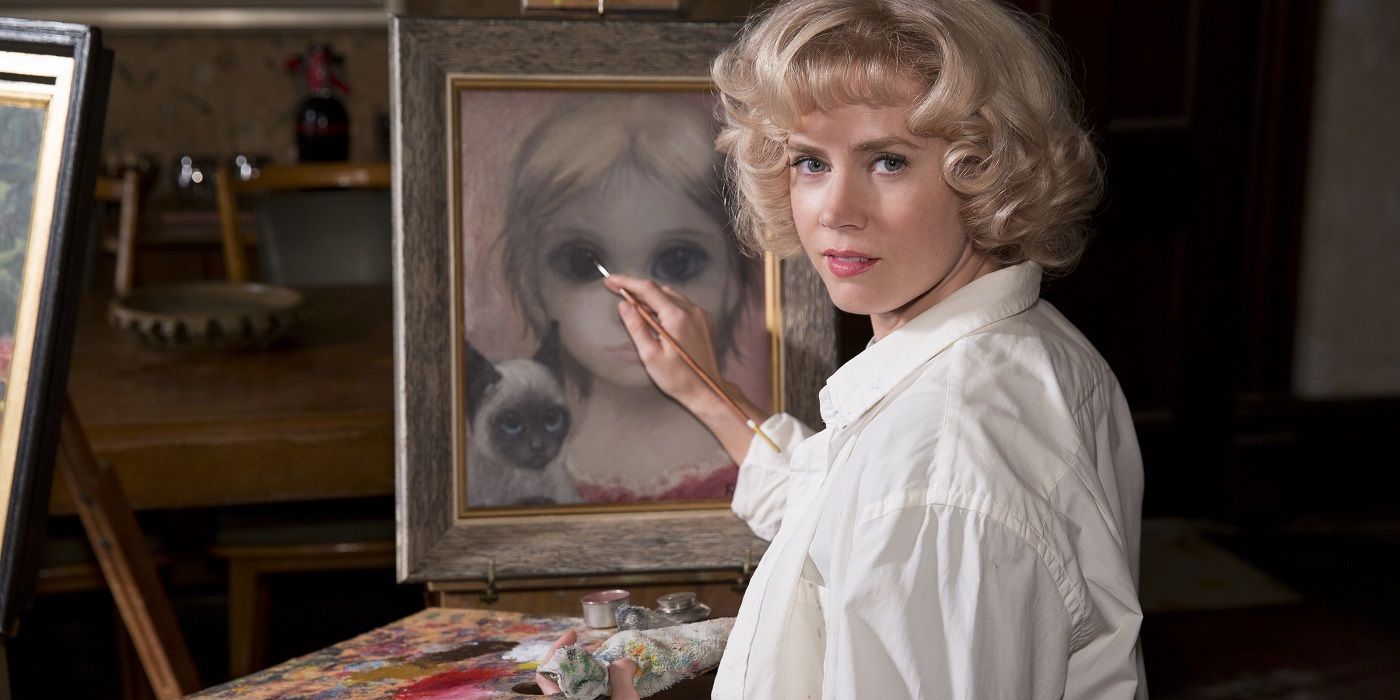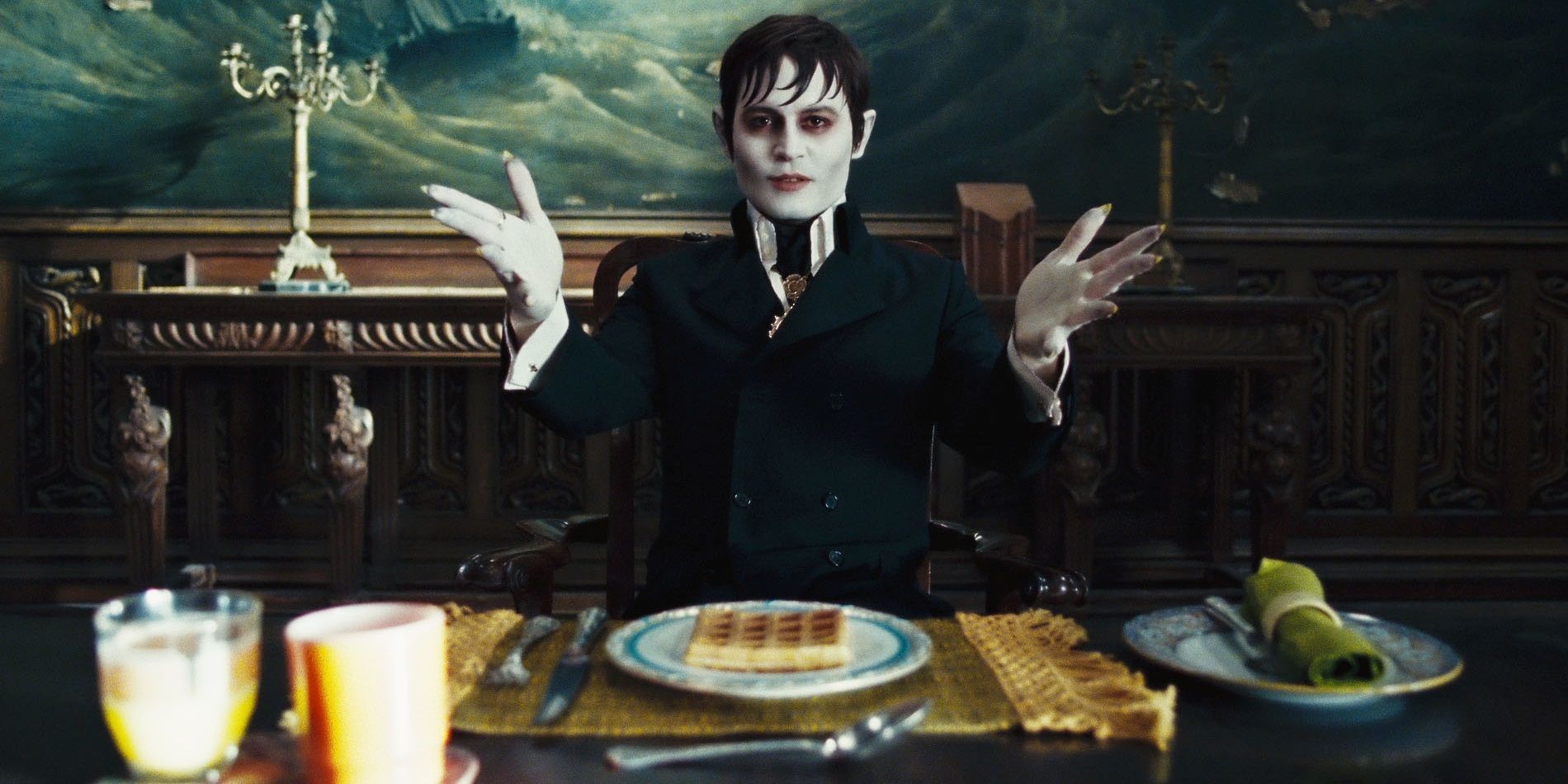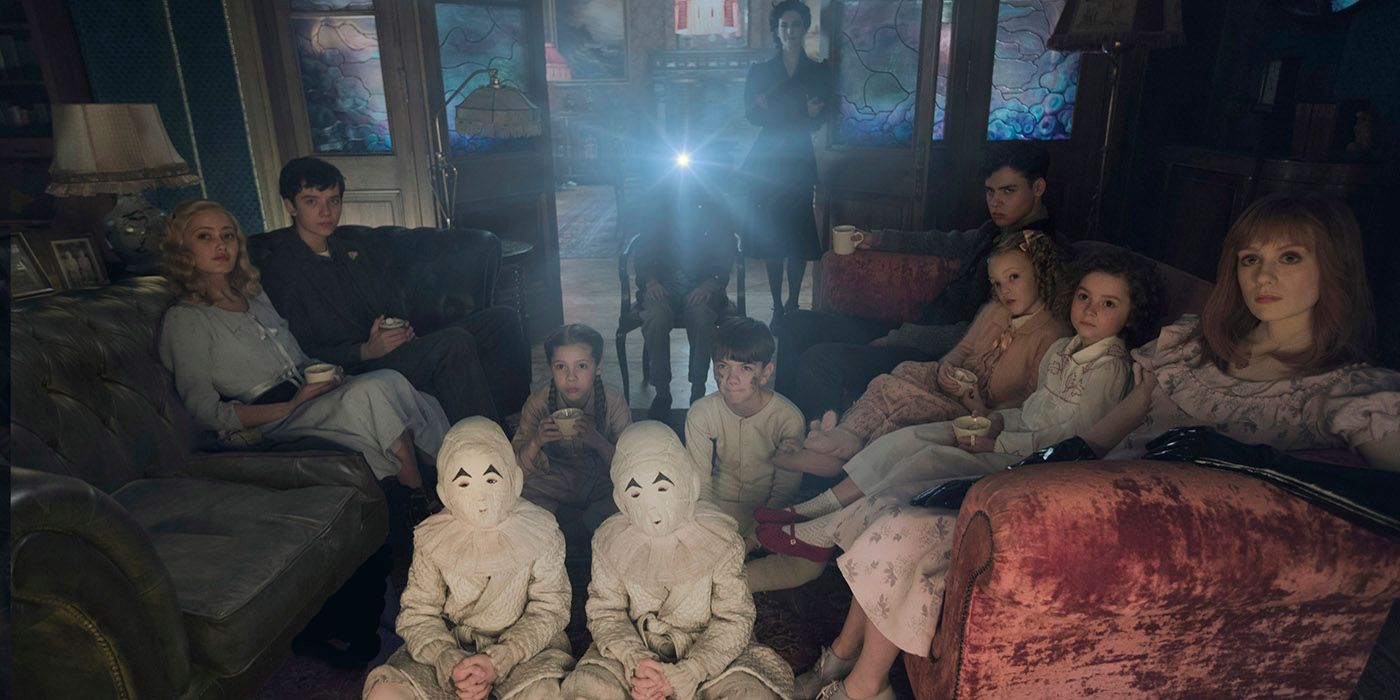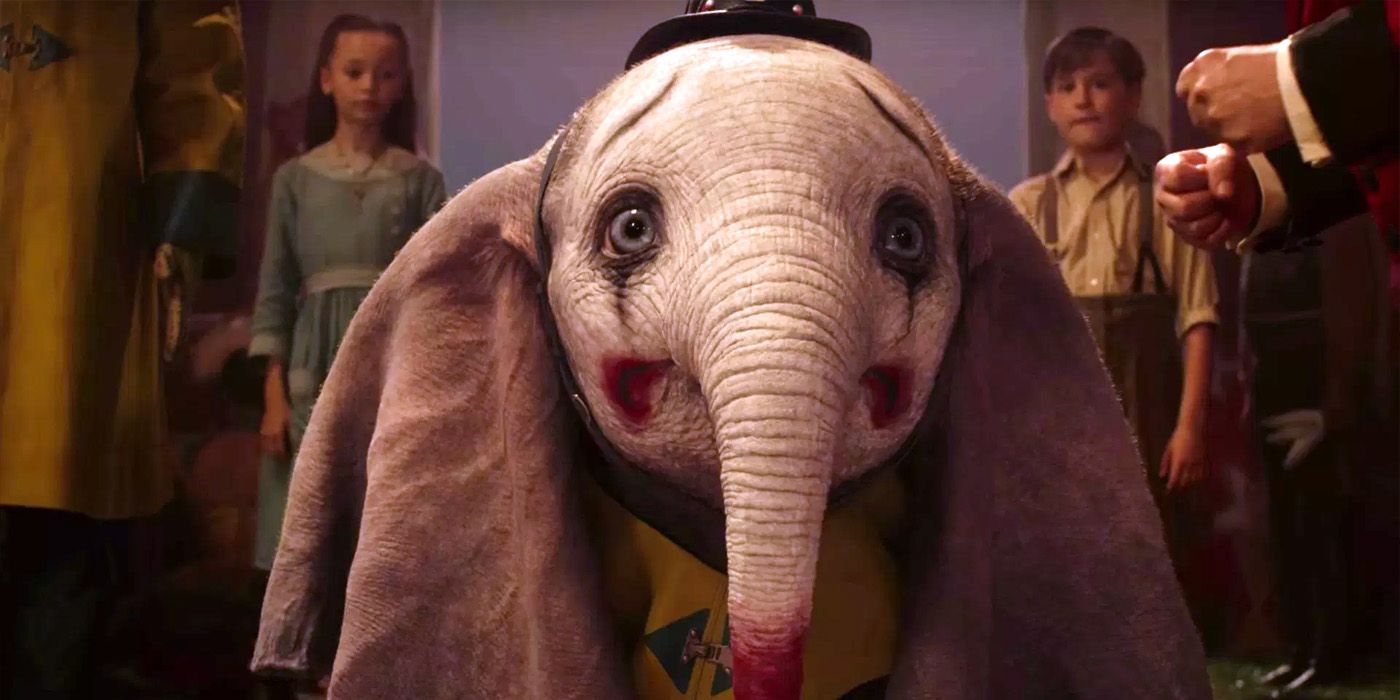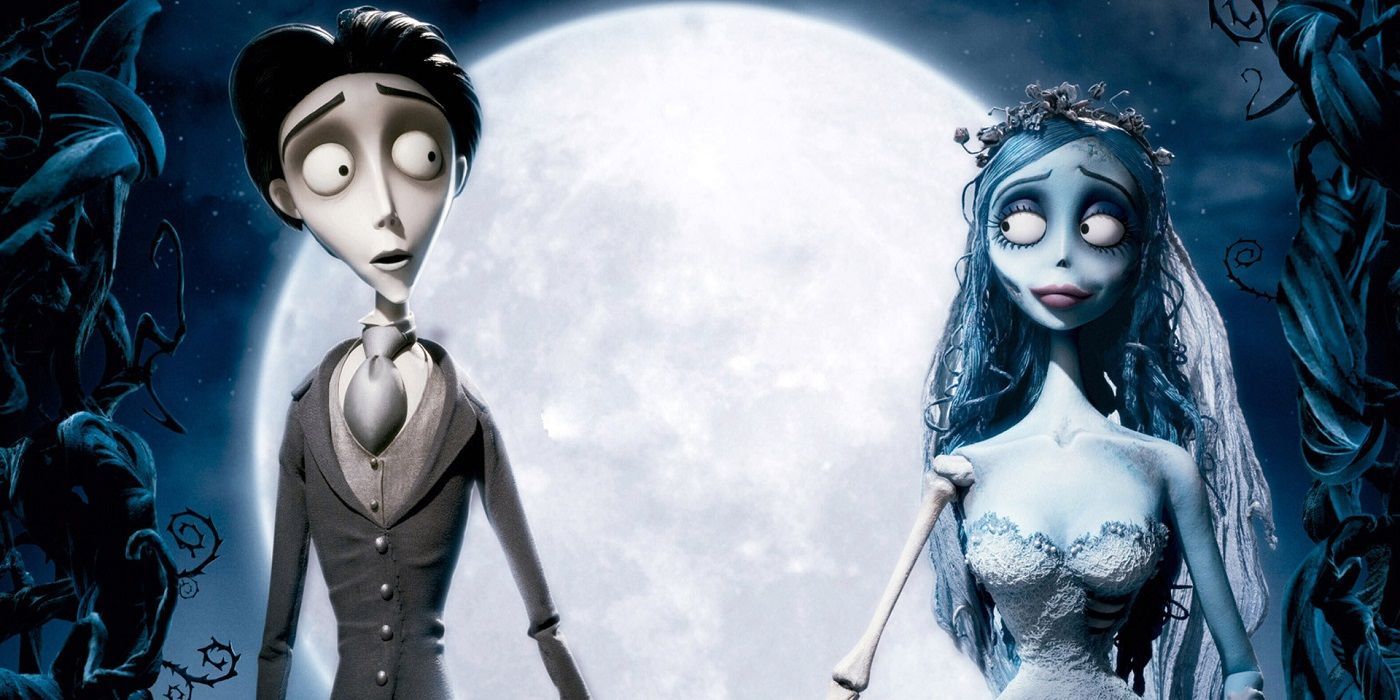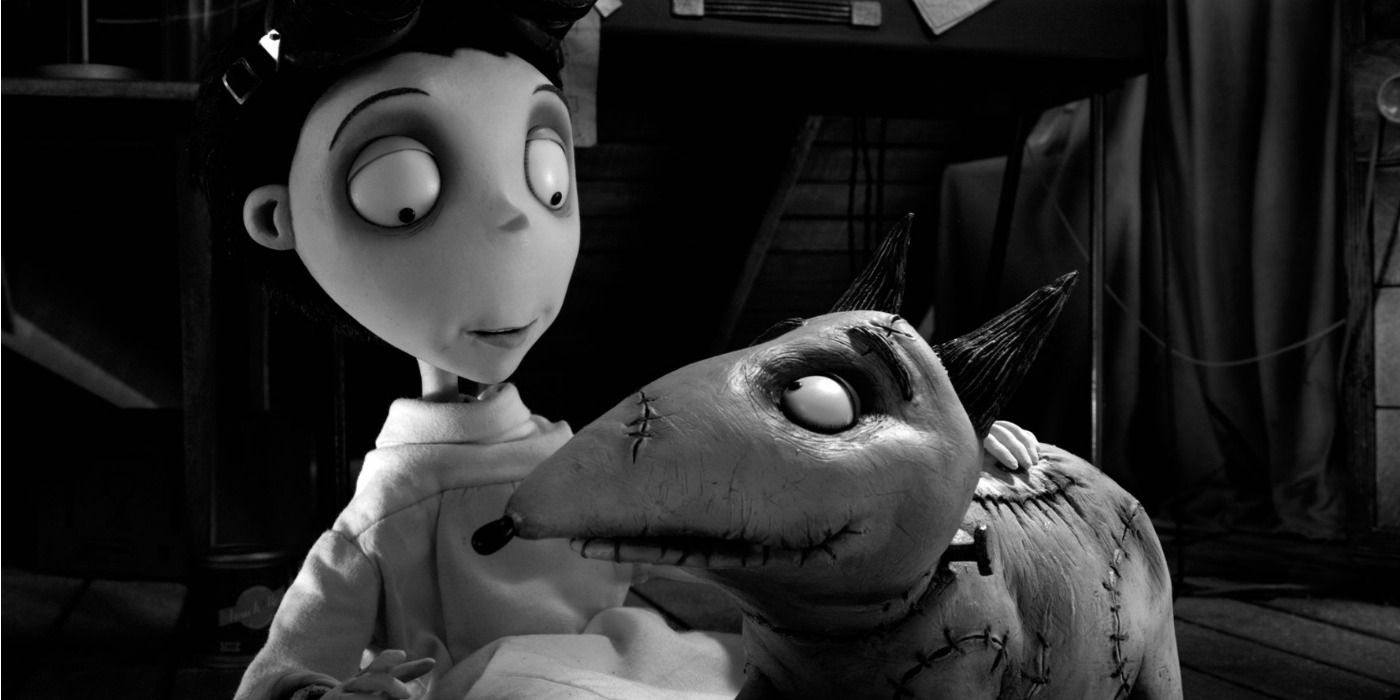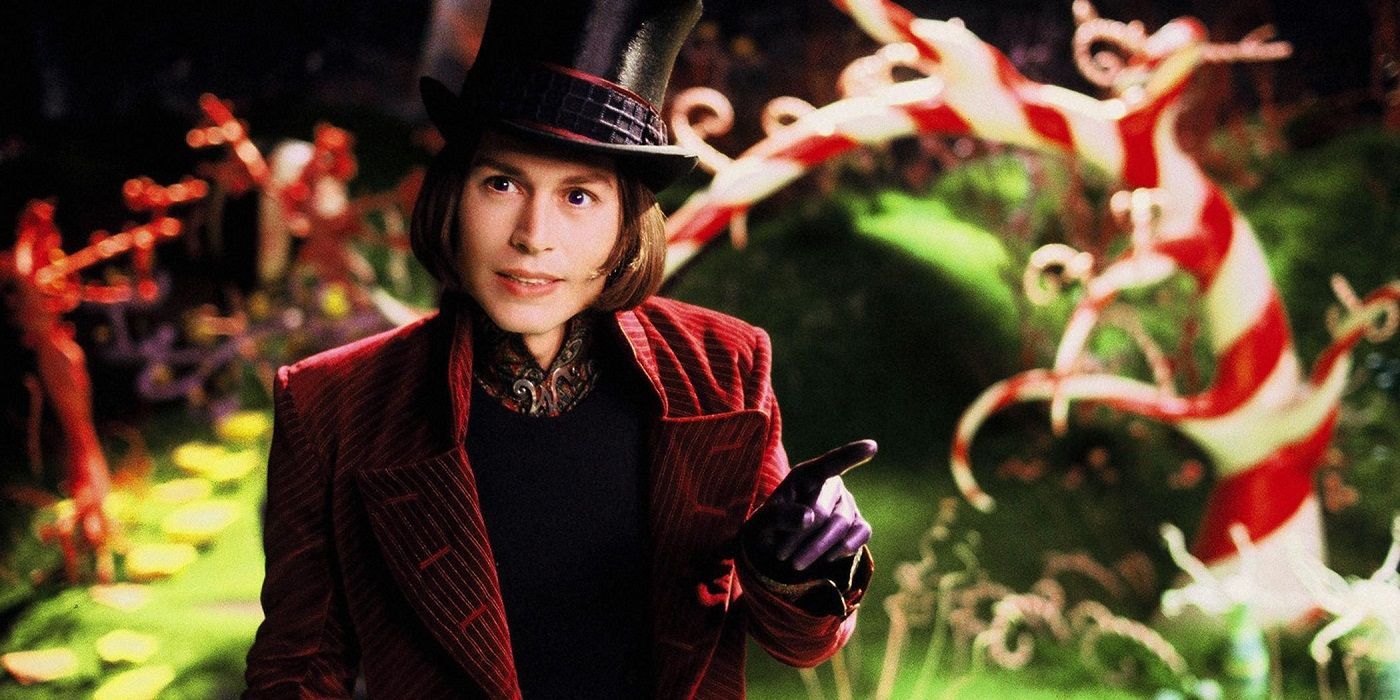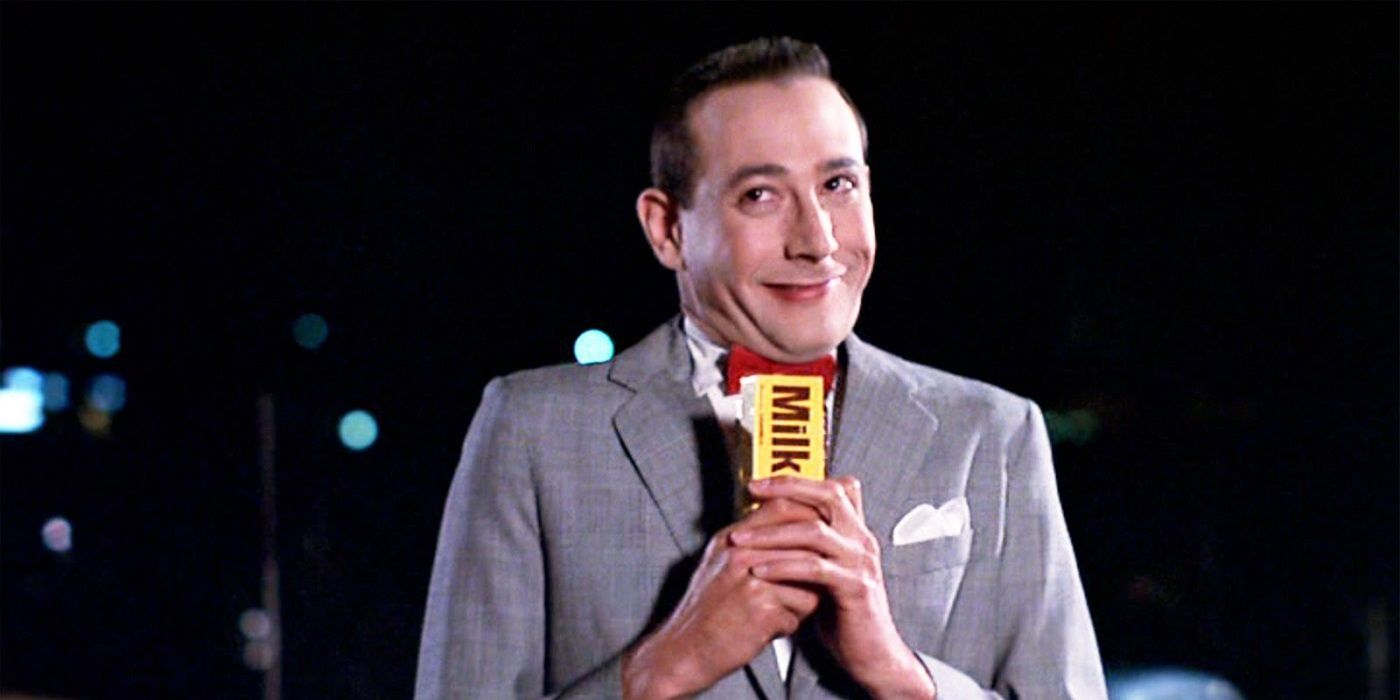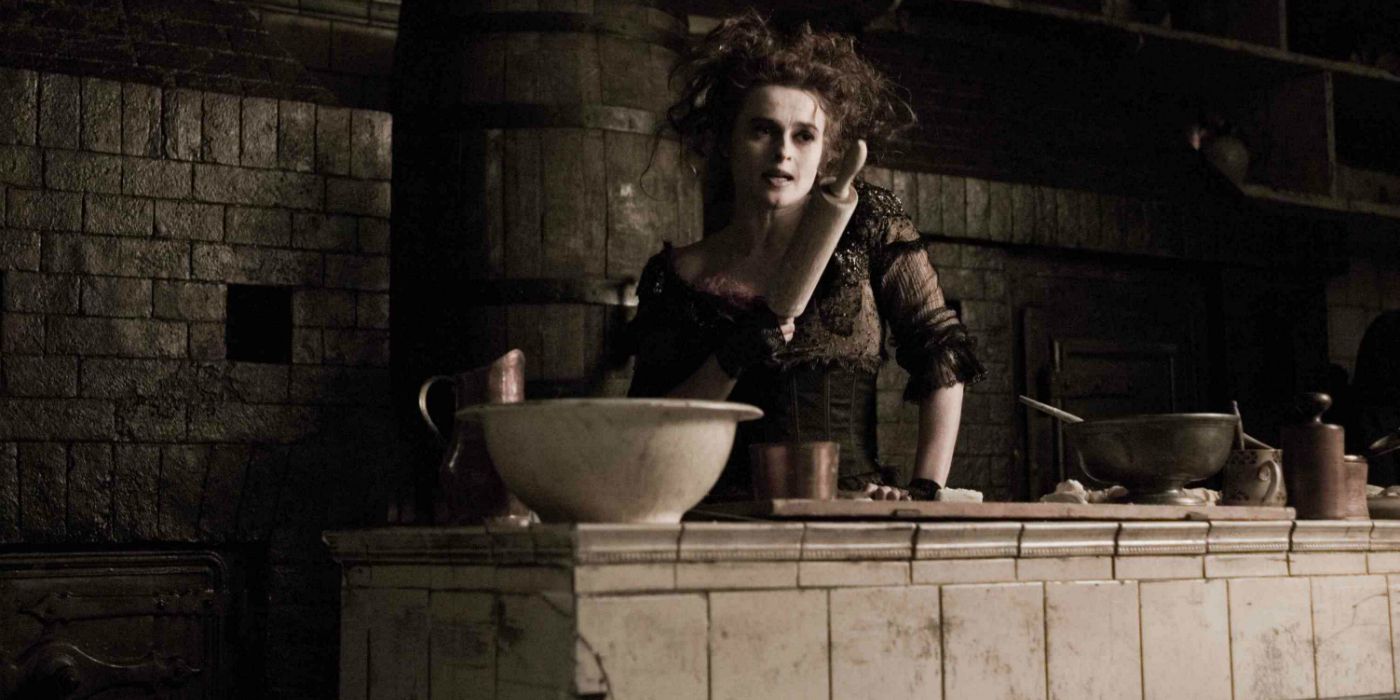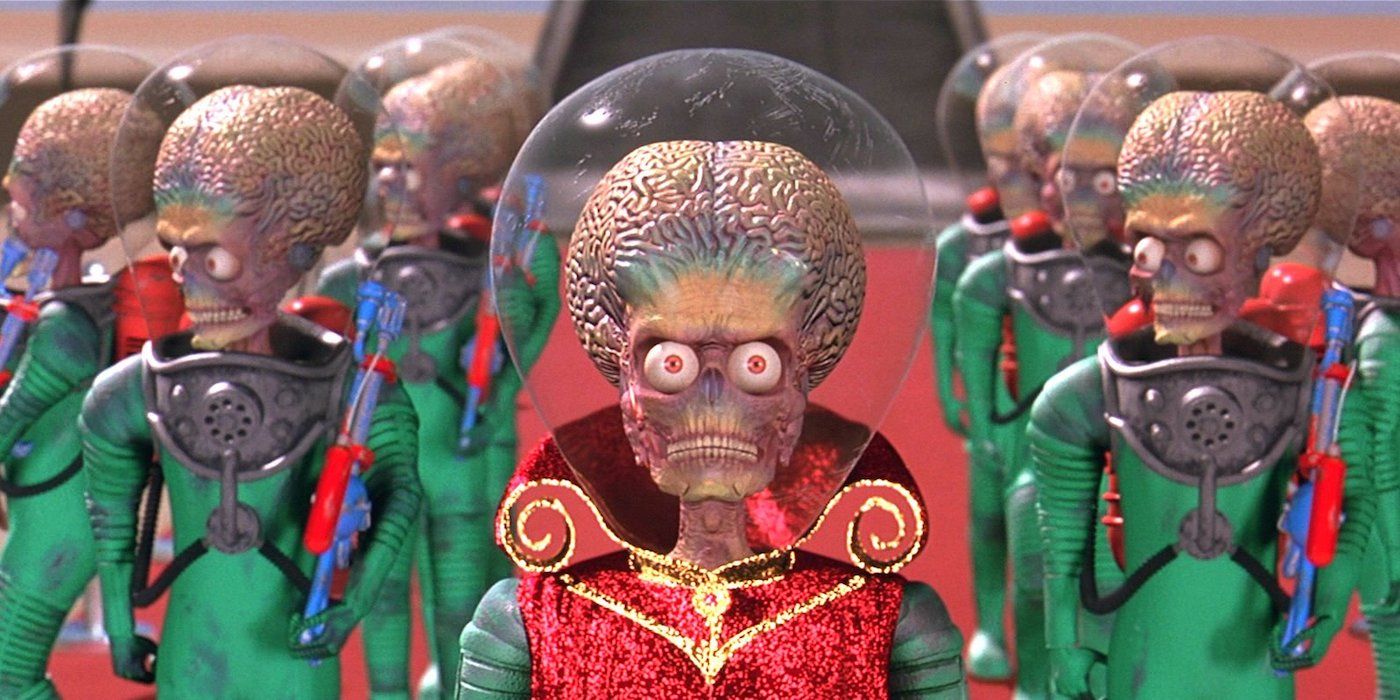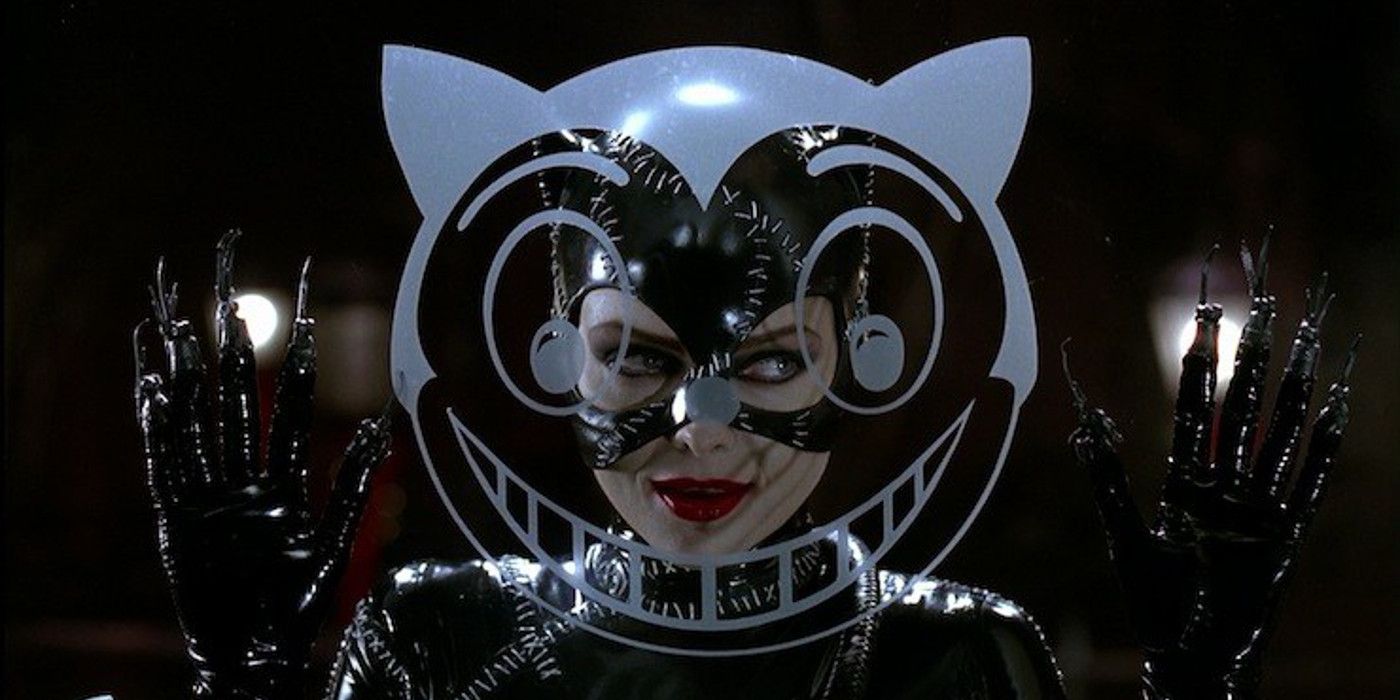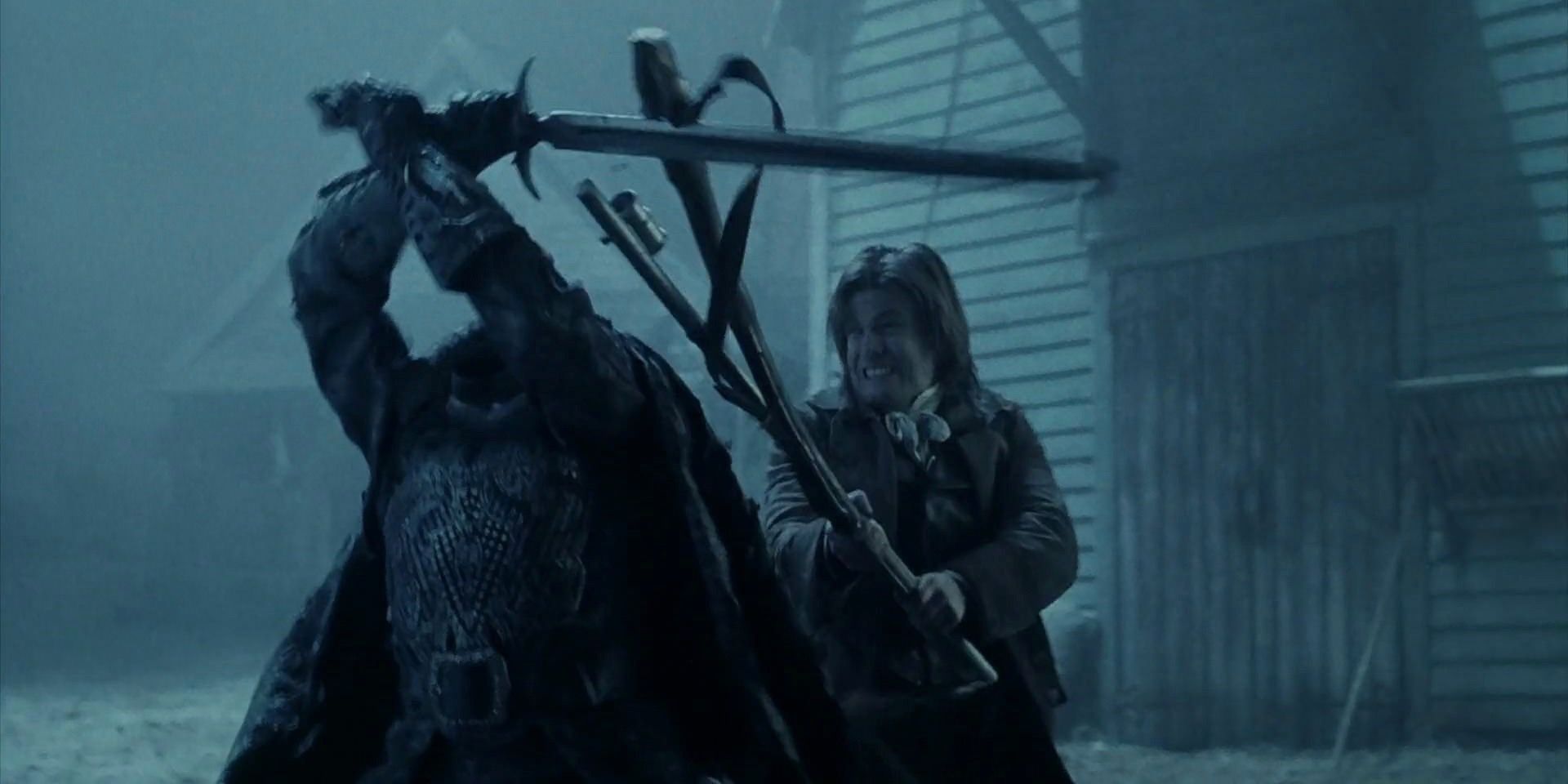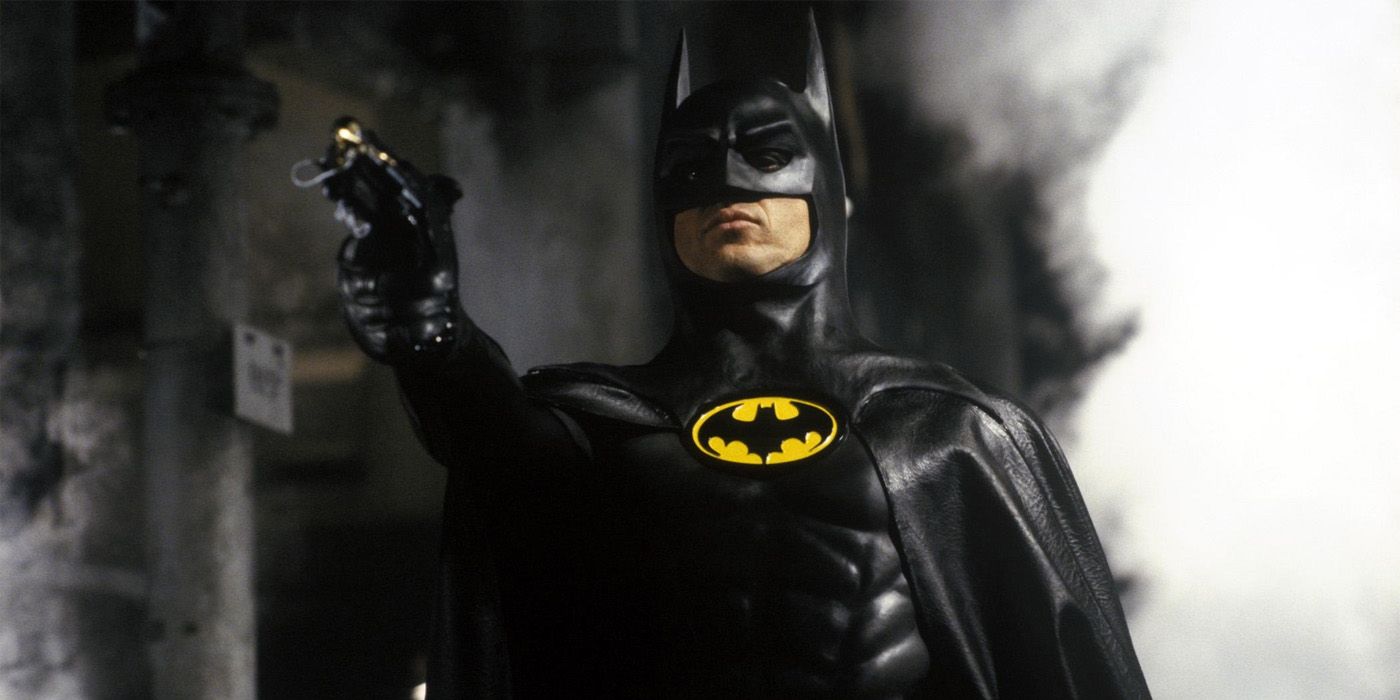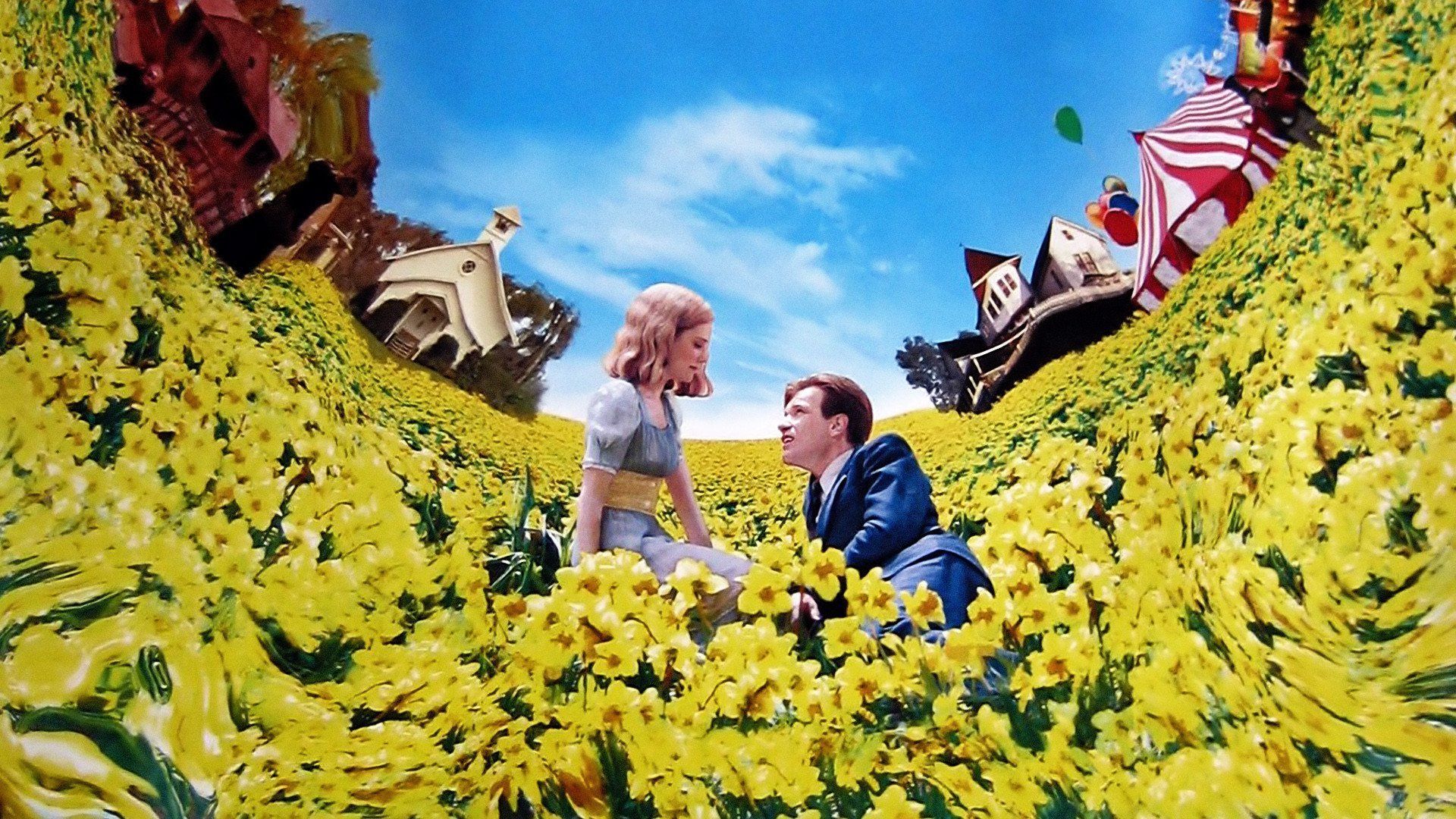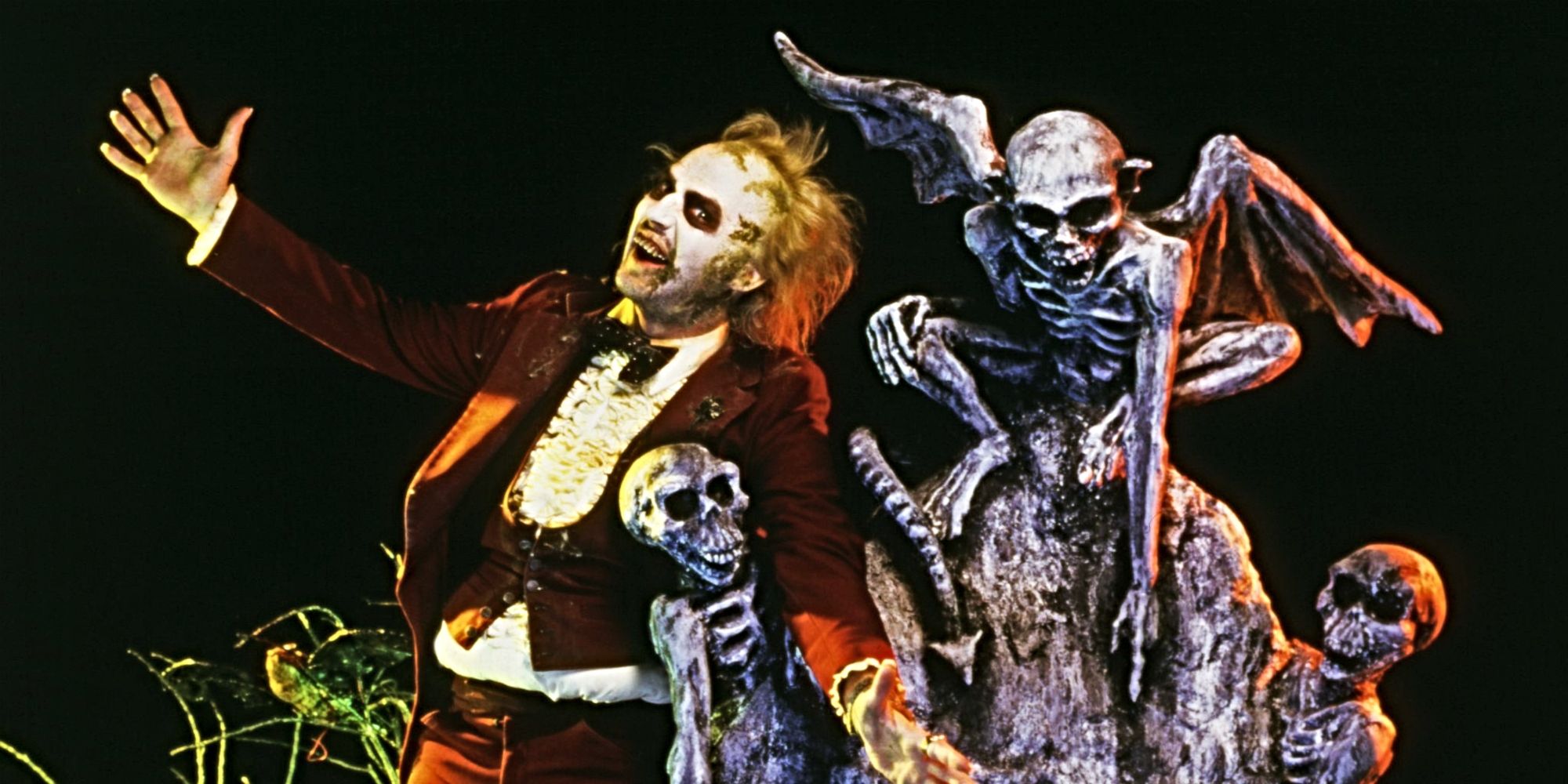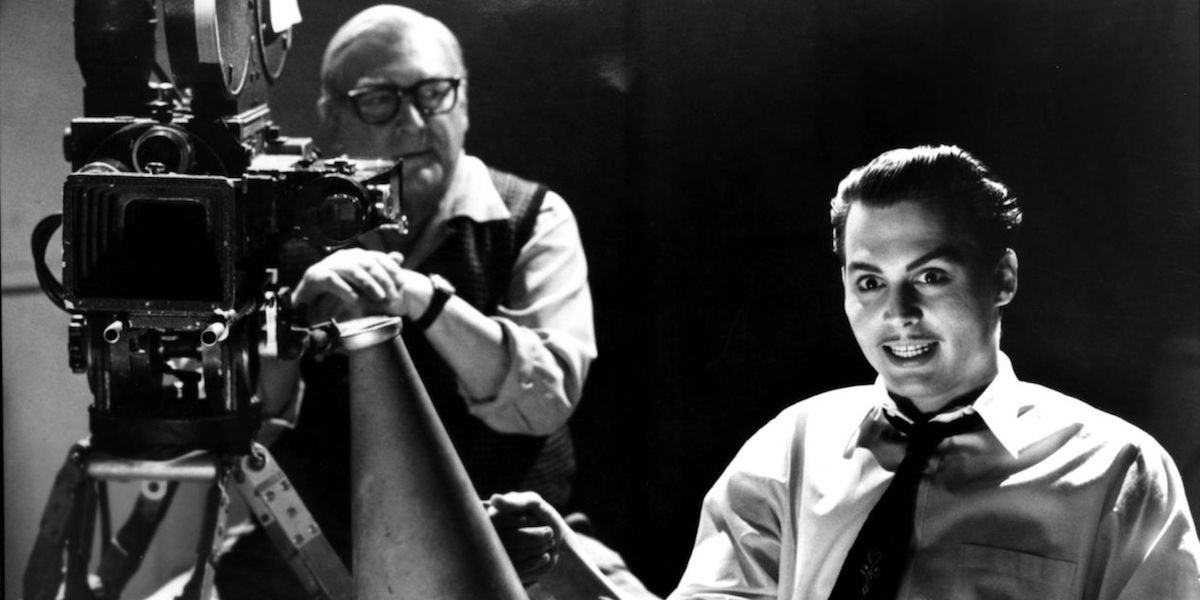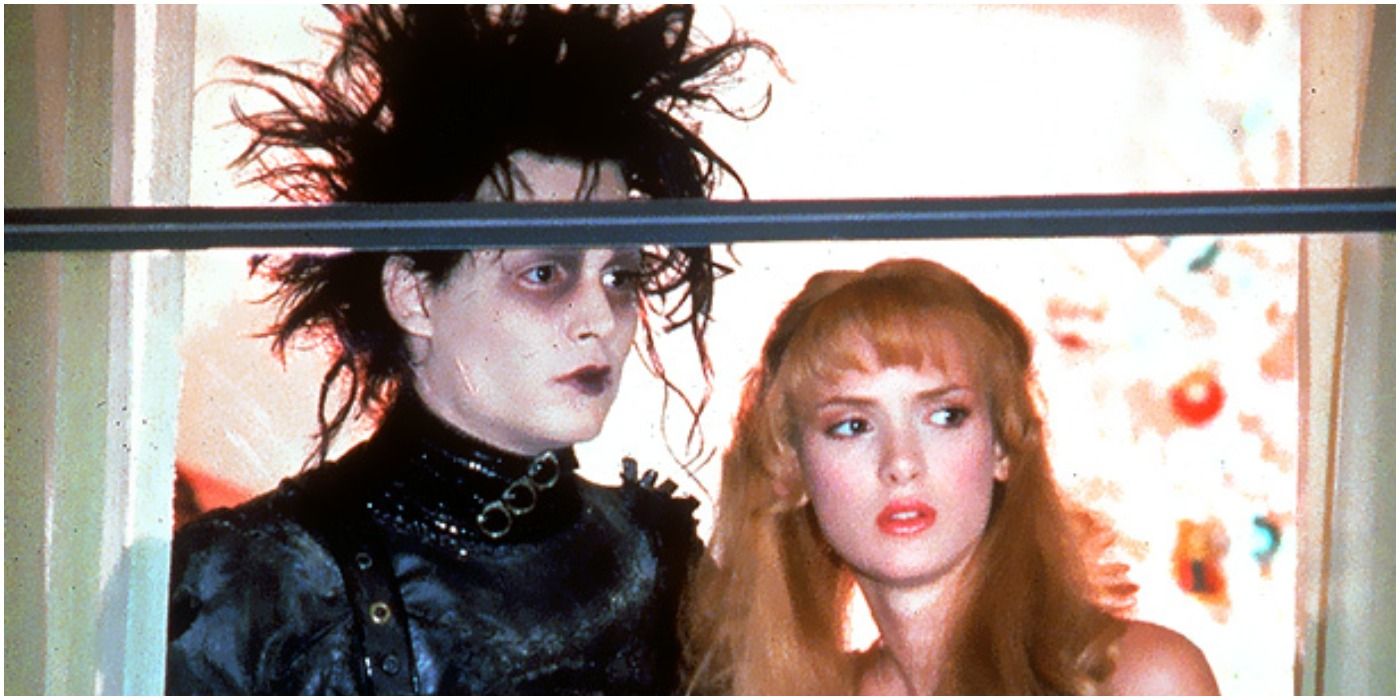With the release of Dumbo, we look at the career of director Tim Burton, from his worst movie to his best. Over the course of close to 35 years, Burton has gone from being a cult favorite outsider to a blockbuster marvel, to one of the most profitable directors of all time. The goth animator who was supposedly fired from Disney for not being child friendly enough has become one of the studio’s most reliable creative forces.
In a sea of superhero franchises and mega budget spectacles, it's amazing that Burton has managed to become so popular in that cultural context, beloved by so many people, all while maintaining the same aesthetic and commitment to the themes he’s been obsessed with for over three decades. Audiences know a Tim Burton film when they see it, regardless of budget or scale, and that’s something of an achievement given how long he’s been around. He’s never compromised, he’s always worked with the same actors he loves, he tells tales that explore his fascinations with the macabre, and all of that has led to him becoming one of the highest-grossing directors ever.
Related: Tim Burton: Inside The Twisted Mind Of The Eccentric Filmmaker
Tim Burton's work is so distinctive that there's even a whole new word to describe it - Burtonesque. A Tim Burton movie can typically be recognized by its love of, as one character in Beetlejuice describes herself, the strange and unusual. He’s a director who loves Edgar Allan Poe and Hammer Horror, German expressionism and high camp, the gory and the melancholy. The weirdos in his worlds are the normal ones, while the suburban dwelling regular folks are the ones to be weary of.
And now, Dumbo marks Burton’s 19th feature film. After helping to kick off Disney’s live-action remake trend with Alice in Wonderland, he’s returned to breathe new life into one of the studio’s oldest and saddest movies. The Dumbo movie reunites the director with actors like Danny DeVito, Michael Keaton, and Eva Green. But how does it stack up to the rest of Burton’s filmography? We take a look at all 19 Tim Burton movies (not including the shorts) and rank them from worst to his absolute best.
- This Page: Tim Burton Movies #19-16
- Page 2: Tim Burton Movies #15-12
- Page 3: Tim Burton Movies #11-8
- Page 4: Tim Burton Movies #7-4
- Page 5: Tim Burton Movies #3-1
19. Alice in Wonderland
Tim Burton making a movie of Lewis Carroll’s iconic children's novel seemed like the perfect combination of director and source material. Surely the mixture of melancholy, nonsense and surreal would prove a rich breeding ground for the man who made his name as arguably the most visually idiosyncratic auteur of the blockbuster age? The end result, however, is easily his most uninspired film, a hodgepodge of images and inspirations from much better sources forced into a hero's journey narrative that misses the entire point of the novel's deliberately languid structure.
It didn't help that Alice in Wonderland was converted into 3D, thus draining its cinematography of any vibrancy. Most of the cast are trying their hardest with the material, but Johnny Depp's turn as the Mad Hatter signaled the beginning of the creatively bereft latter period of his career, wherein the wigs seem to be doing most of the acting. Still, the film was wildly successful, making Disney over $1 billion and helping to kick off their current age of live-action remakes. That commercial frenzy only makes this film a bigger disappointment in terms of Burton's work because it seemed to herald a new period of his filmography where he didn't seem especially enthused by his own movies. That's why Alice in Wonderland is easily the worst of the Tim Burton movies.
18. The Planet of the Apes
It’s easy to forget just how big a deal it was when it was announced that Tim Burton would be remaking the sci-fi classic Planet of the Apes. To be more accurate, Burton called the film his "re-imagining" of the original Planet of the Apes, and that term became a punchline for many a failed remake in the following years. With a $100 million budget from 20th Century Fox, the legendary Rick Baker signed on to design the astounding makeup. And with a cast including Mark Wahlberg, Tim Roth, Paul Giamatti, and Helena Bonham Carter, Planet of the Apes seemed like a sure-fire hit.
Of all of the Tim Burton movies, it’s Planet of the Apes that feels the least like a Tim Burton movie. Indeed, one would be forgiven for thinking someone else did all the work and he took the credit because not only is this film bereft of Burton’s favored styles and ideas, its approach is so stagnant and could have been done by anyone. The screenplay's attempts to pay homage to the original movie while putting new twists on iconic moments fell flat and were incomprehensible in some cases, including an ending that even Tim Roth didn't understand. Planet of the Apes did decently at the box office, but it didn’t inspire a new franchise like Fox had hoped. And so, Burton, understandably, moved onto a much smaller project.
17. Big Eyes
After a couple of years of disappointing movie critics, many thought that Big Eyes would be a return to form for Tim Burton, a new Ed Wood of sorts to show how adept he is at more conventional biographical dramas while remaining faithful to his roots. Alas, the end result was far less satisfying than that, and it did little to reverse growing critical cynicism. Based on the true story of Margaret Keane, a painter whose eerie works of children with large emotional eyes were passed off as the work of her exploitative husband, Big Eyes seemed to have a lot going for it and garnered early awards buzz for the performance of Amy Adams (she would win a Golden Globe but didn't land an Oscar nomination as some had predicted).
Big Eyes is more dull than anything else, and Christoph Waltz, who hams it up to near unfathomable levels, seems to think he’s in a far different movie. All the pieces were there for something special, but Big Eyes is a Tim Burton movie that, bar Adams’ luminous performance, struggles to justify its own existence.
16. Dark Shadows
The 1960s series Dark Shadows was ground-breaking in its day, a gothic soap opera at a time when the genre was mostly focused on realist domestic drama. It's not hard to see why Tim Burton of all people would be so drawn to it as a child, and Johnny Depp also cited the big screen adaptation as a dream project. The story of a vampire who awakens in the 1970s and loves in with his descendants is ripe for melodrama and fish-out-of-water humor but so many of the jokes land oddly flat. It never settles on a tone and struggles to juggle kitsch with horror. As gorgeous as it looks - and, as always with a Tim Burton movie, the details are astounding - there's little going on beneath the surface. Its saving grace comes in the form of an extremely game Eva Green, who is having the time of her life as the witchy antagonist.
Page 2: Tim Burton Movies #15-12
15. Miss Peregrine’s Home for Peculiar Children
Based on the series of popular young adult novels by Ransom Riggs, it's not hard to see why Tim Burton would be drawn to a story about strange kids with superpowers who live in a gothic mansion with a mysterious woman who can turn into a falcon. The great hook of the books was the use of vintage photographs collected by the author, giving the story a unique visual language that seemed tailor made for the big screen. While Miss Peregrine’s Home for Peculiar Children certainly gives Burton a large canvas to indulge his pet favorites, and it’s always a delight to see Eva Green embrace her most witchy qualities as an actress, the film is still one of his weaker efforts.
Burton has oft been accused of prizing style over substance, caring more about production design than plotting. That’s not always a bad thing, especially when you do aesthetics as well as he does. However, with Miss Peregrine, the plotting is so unnecessarily dense and the world-building deeply convoluted, that you find yourself unable to overlook how much Burton cannot be bothered to deal with such things. The overstuffed story, combined with some truly inexplicable editing choices, hampers Burton’s abilities to just make a good old fashioned Tim Burton movie, which is all we truly want from him.
14. Dumbo
Grading any sort of live-action remake of a Disney classic can prove tricky since the formula dictates a level of specificity and brand synergy that most run-of-the-mill remakes don't. When Tim Burton made Alice in Wonderland, that formula had not been perfected, so he got to deviate from the source material more than he probably would have only a few years later (although that may have been an improvement given how terrible that film turned out to be). With Dumbo, he has to adhere to those norms, but how do you turn a child's fable that's barely an hour long into an epic movie twice that length? You make some of the more baffling creative decisions seen in a Tim Burton film.
Dumbo is not necessarily a bad film. Indeed, it's understandable why so many critics have declared this to be a high point in Burton's recent filmography. However, it's hampered by that need to be a Disney live-action remake, even when it's creatively impossible to be so. So, while there are moments that soar, such as those flying scenes, and actors giving it their all, like a gloriously camp sinister Michael Keaton, the changes made for adaptation prove more confusing than anything else. What may be Disney's simplest tale has become an overstuffed blockbuster with war veterans, dead mothers, and a subplot about the evils of selling out to a major corporation (the latter part proves especially hilarious given Disney's recent acquisition of 20th Century Fox and the obvious parallels created). It's not without its charms, and the final act has some great action bears, but Dumbo feels like something that should have returned back to basics.
13. Corpse Bride
As noted on every movie trivia website, Tim Burton didn’t actually direct the animated film most closely associated with him, The Nightmare Before Christmas. Despite his name being all over the posters and the visuals being so recognizably Burtonesque, the work of direction fell to stop-motion animation legend Henry Selick. Audiences wouldn’t actually get an animated Tim Burton movie until 2005 when Corpse Bride came out, the same year as Charlie and the Chocolate Factory. However, the results, while more technically polished, lacked the spark of The Nightmare Before Christmas.
Wearing its Edgar Allan Poe influences on its sleeve, Corpse Bride has moments of that trademark Burton macabre approach but little of the emotional punch that made Nightmare so memorable. The film is at its best when it plays around with Burton’s skewering of societal norms, depicting the underworld as the most vibrant place while the land of the living is grey and smothered by expectations. When the film has to adhere to its rather uninteresting story, it’s much less satisfying.
12. Frankenweenie
Tim Burton's career began at Disney, where he worked as an animator and concept artist on films like The Fox and the Hound and The Black Cauldron, but while there he also dabbled in his own short films. Frankenweenie, one of his first live-action productions, was a short film about a boy who brings his dog back to life after he's hit by a car. The short allegedly got Burton fired, with Disney supposedly claiming he shouldn't have been spending company resources on something too scary for kids. The irony that he was able to remake this short with Disney in 2012 was lost on nobody.
Remade as stop-motion animation, Frankenweenie is one of Burton's more tightly constructed stories thanks to its zippy 87 minute running time. Filmed in black and white and chock full of old horror references - this may be the most Easter egg-packed Tim Burton movie ever made - Frankenweenie is a simple tale that still manages to nail the sheer sadness of losing a beloved pet, even after he’s brought back to life. After making a few massive films one after the other to mixed results, there’s something to be said for a Tim Burton movie that goes back to basics, even if it doesn’t entirely have enough energy to keep it going.
Page 3: Tim Burton Movies #11-8
11. Charlie and the Chocolate Factory
Author Roald Dahl famously hated the first adaptation of his book, Charlie and the Chocolate Factory. He disliked the changes made to deviate from the novel and opposed the decision to focus on Willy Wonka over Charlie Bucket (he also didn’t care for the casting of Gene Wilder, preferring British comedian Spike Milligan for the role). When it came time to remake the film, it went through various stars (Nicolas Cage, Adam Sandler, and Bill Murray were all considered for Wonka) and directors before Tim Burton joined the project. Burton was also the Dahl estate's choice for the job, which proved beneficial for Warner Bros. in getting their approval for the film.
Charlie and the Chocolate Factory is far more faithful to Dahl's book, not only in terms of plot but in tone. Dahl's deliciously sinister approach to children's fiction is in full display here and feels like a perfect fit for Burton’s brand of glee. While some of the CGI hasn't aged well, the chocolate factory has never looked more sumptuous. Johnny Depp may have gotten all the headlines for his pseudo-Michael Jackson homage performance as Wonka, but the real star of the Tim Burton movie is Freddie Highmore as Charlie. What stops it from being top-tier Burton is a shoehorned in backstory for Wonka that can easily be boiled down to “daddy issues”. The film is much smarter when it reveals nothing about why Wonka is the way he is and simply lets the audience indulge in the pure imagination of his world.
10. Pee-wee’s Big Adventure
Paul Reubens' Pee-wee Herman has remained a beloved character for kids and adults alike since his TV debut in 1981. The frantic entertainer, both terminally delightful and completely bonkers, made the leap to the big screen in 1985, and a post-Disney Tim Burton was looking for a new gig. Reubens, who was a fan of his Disney shorts, hired Burton and gave him his feature directorial debut.
Pee-wee’s Big Adventure isn’t a film that can neatly be described as a Tim Burton movie in the traditional sense. This is Reubens’ creation through and through. However, there are moments peppered throughout that reveal the sort of director Burton would become, such as the Large Marge scene that remains nightmare fuel for an entire generation. Burton manages to keep Reubens on a tight enough leash so that Pee-wee’s unpredictability doesn’t derail the entire movie. It’s also the film that introduced Burton to Oingo Boingo frontman Danny Elfman and birth the most committed creative partnership of both their careers. Pee-wee’s Big Adventure made close to six times its original budget back, put Burton’s name on the map, and the rest is history.
9. Sweeney Todd: The Demon Barber of Fleet Street
The legendary composer Stephen Sondheim is massively beloved and arguably the most influential figure in musical theater of the past several decades. However, he’s not someone whose work has been favored by Hollywood for adaptation. His deftly complex compositions and operatic approach to the medium make him a tricky prospect for any filmmaker hoping to translate his work to cinema. Of the scant number of Sondheim adaptations we have, Burton’s Sweeney Todd is easily the best.
Another seemingly perfect match of material and creator, the Tim Burton movie version of the mythic barber, who murders his clients and has them turned into pies, includes heavy influences from Hammer Horror. It’s a proudly bleak story of bad people doing bad things, with a body count and volume of spilled blood high enough to rival any slasher movie. Everyone involved is giving it their all, imbuing this narrative with such verve and enthusiasm, to the point that audiences almost forget this is one of the most depressing musicals ever written. The singing, while decent enough, cannot help but let the story down on some level. Sondheim’s lyrical style demands only the strongest voices, and while Helena Bonham Carter and Johnny Depp have their charms, the music deserves more. Still, when everything else in the story is firing on all cylinders, it’s an element that’s easy to forgive.
8. Mars Attacks!
While the typical Tim Burton movie is discussed in terms of its gothic style and macabre tone, it’s oft-overlooked how incredibly earnest his work is. Burton isn’t afraid of sentimentality or emotional catharsis, even when it seems at odds with his bleak visuals. The exception to this rule is Mars Attacks! Based on a series of Topps trading cards from the 1960s, the madcap homage to science-fiction B-Movies of the 1950s is Burton at his most sardonic. It’s a cynical Generation X approach to the alien invasion genre, one where the mere thought of sentimentality is shot to pieces with laser guns.
Chock full of some of Hollywood’s biggest stars, each of them playing characters more awful than the last, Mars Attacks! suffered from being released in the same year as Independence Day, an unabashedly crowd-pleasing blockbuster that has no qualms with playing worldwide catastrophic destruction for cheers and awe. By comparison, Mars Attacks! mocks everything that film does so earnestly. That’s no bad thing, for the end result is easily the funniest Tim Burton movie, and one that’s only gotten better with age. A flop upon release that opened to tepid reviews, Mars Attacks! definitely deserves a revisit.
Page 4: Tim Burton Movies #7-4
7. Batman Returns
Batman Returns is technically a Batman movie, but it’s far more of a Tim Burton movie than one that can be accurately described as a faithful adaptation of DC’s most beloved detective. It’s something of a minor miracle that Burton even got this film made. It’s a trippy homage to German expressionism that doesn’t seem to care all that much about Batman. Burton’s focus is far more on Danny DeVito’s gloriously grotesque take on the Penguin - a man literally raised by sewer penguins - and Michelle Pfeiffer’s tour de force turn as Catwoman. Burton turns Gotham's eclectic band of misfits into his own ensemble of oddities and blends high camp with over-the-top horror.
Batman Returns is a far less coherent movie than Batman and the plotting falls apart in the third act, but it's not hard to see why it's still beloved by fans. While the film made money, it wasn't the gargantuan hit its predecessor was, much to the disappointment of Warner Bros., so Burton left the franchise and was replaced by Joel Schumacher. But what remains is easily one of his most entertaining movies.
6. Sleepy Hollow
The best Tim Burton movies happen when he throws caution to the wind and freely indulges his stylistic whims. If there’s bloodshed, then all the better. His take on the legend of Sleepy Hollow is, at best, choppily paced with plotting that often feels thrown together at the last moment, but its old-school horror imagery sliced with knowing melodrama is endlessly enjoyable. Sleepy Hollow is easily one of Burton's prettiest movies, the sort of lavish affair that could only have been made by someone who has watched a lot of Christopher Lee vampire movies and wants to achingly recreate every piece of production design. How could it not look sumptuous at every turn when Colleen Atwood is designing costumes and the cinematography duties fall to the now legendary Emmanuel Lubezki?
Burton works incredibly well with camp, and while Sleepy Hollow doesn’t entirely indulge that whim, it is always aware of how silly its concept is and isn’t afraid to play around with that, from rolling heads to Depp as Ichabod Crane being sprayed with the reddest blood in horror cinema at inopportune moments. Sleepy Hollow features a veritable murderer’s row of talent, from Depp to Christina Ricci to legendary British talents like Richard Griffiths, Miranda Richardson, Michael Gambon, and Emperor Palpatine himself, Ian McDiarmid.
5. Batman
Handing over the reins of the Batman cinematic universe to the mostly unknown Burton in 1989 was a major risk for Warner Bros. Granted, superhero movies weren’t the zeitgeist defining juggernaut they would become and the very idea of making a serious movie out of a comic book at the time was seen mostly as a joke by other studios. Yet the choice of the then-30-year-old Tim Burton, fresh from Pee-wee, proved unexpected compared to earlier rumored directors like Ivan Reitman and Joe Dante. The gamble paid off and then some, and Batman became the second highest grossing movie of 1989.
Nowadays, in a post-Nolan and DCEU world, it’s easy to dismiss Burton’s Batman as a weaker movie, one nowhere near as sophisticated as what would follow. However, that would ignore not only the film’s cultural impact but its genuine skill and enjoyment factor. Considered too adult for family audiences on release, it’s the giddily frenetic tone of the movie that makes it such a thrill to watch. The production design that Burton’s films would become famous for is on full show here as Gotham City comes to life in the most exciting way possible. Jack Nicholson as the Joker may be the over-the-top villain that the film was sold on, but Michael Keaton’s Bruce Wayne remains a sinfully underrated addition to the canon as he nails the quiet madness of DC’s tortured playboy. It may not be as much of a Tim Burton movie as its sequel, but Batman is an altogether more consistent affair, blending Frank Miller with the 1960s series to striking effect.
4. Big Fish
One of the most prevailing themes in Tim Burton movies is that of father issues. So many of this films feature fathers or father figures who have complex relationships with their sons, from Edward Scissorhands’ creator to Willy Wonka’s stern dentist father. Nowhere is that more evident than in Big Fish, his 2003 adaptation of the novel by Daniel Wallace. Nowhere is it more affecting either, as this story of a man trying to figure out how much of his father's fantastical tall tales of his youth are true allows Burton to delve into those themes with a Southern Gothic twist.
Big Fish is one of Burton’s more openly sentimental movies, but he’s clever enough to dial back the saccharine when necessary. Albert Finney and Ewan McGregor play Ed Bloom at both stages in his life, while Billy Crudup plays his exasperated son, two men who simply want to understand one another before they run out of time. The set pieces in Big Fish are, as expected with Burton, stunning, but the emotional core of this film is what elevates it to top-tier Burton. Burton’s never been afraid to make his audiences cry, but Big Fish is his most overwhelming tearjerker.
Page 5: Tim Burton Movies #3-1
3. Beetlejuice
Following the success of his directorial debut, Burton was dissatisfied with the scripts sent his way, until a horror-comedy called Beetlejuice landed on his lap. After extensive rewrites, Burton managed to bring on board a top notch cast, even though many of them had no idea what to expect from such a strange story. The end result is a hilarious pastiche of classic horror and the poltergeist sub-genre that blends slapstick with stop-motion strangeness with ease. At the heart of the Tim Burton movie is the comedic tornado that is Michael Keaton's performance as the title character. He doesn't so much chew the scenery as tear it to shreds, spewing out one liners and reveling in the sheer oddness of his character. While the parody of 1980s yuppies moving to the countryside is well-worn by now, the jokes still land, and Catherine O’Hara once again reminds viewers why she is a comedic national treasure.
2. Ed Wood
At the height of his powers, when the whole world knew what a Tim Burton movie looked like, Burton did the unexpected and made a conventional biopic. Granted, this is still very Burtonesque and there’s no better subject for such a tale than Ed Wood, oft-declared to be the world’s worst director. His second film with Johnny Depp, Burton took the story of Wood and told a celebratory tale of a scrappy underdog who fights the system to make art with his band of ragtag friends. Rather than mocking a very easy target, Burton finds a kindred spirit in Wood, avoiding parody and meanness in favor of genuine warmth for a man he believes to have been misunderstood by history.
Instead of leaning into Lynch and Universal monster movies for his cinematic inspiration, Burton goes full Frank Capra with his enriching approach. The cast are uniformly strong, but it’s Martin Landau’s quietly tragic turn as Bela Lugosi that won the lion’s share of praise upon Ed Wood's release (as well as an Oscar). On top of being one of Tim Burton’s best, Ed Wood may be his most uplifting movie.
1. Edward Scissorhands
If people were required to give an example of the title that best exemplifies what it means to be a Tim Burton movie, then they would look no further than Edward Scissorhands. Made after Burton gained A-List status following the success of Batman, the film is a love letter to everything he holds dear - from gothic romance and Universal monster movies to fairy-tales and parodies of suburbia. His re-imagining of Frankenstein makes the monster a fragile young man with scissors for hands who wants nothing more than to fit in with the "normal world" but is quickly fetishized them ostracized by those he wants to please.
Even close to 29 years later and following countless parodies, Edward Scissorhands remains startlingly effective and deeply moving. It's the film that changed the game for Tim Burton and made him who he is, as well as its star Johnny Depp. The film was a commercial success, critics loved it, and it cemented the beginning of Burton's most enduring partnership with an actor. With all of that in its favor, how could it not be the best Tim Burton movie?

